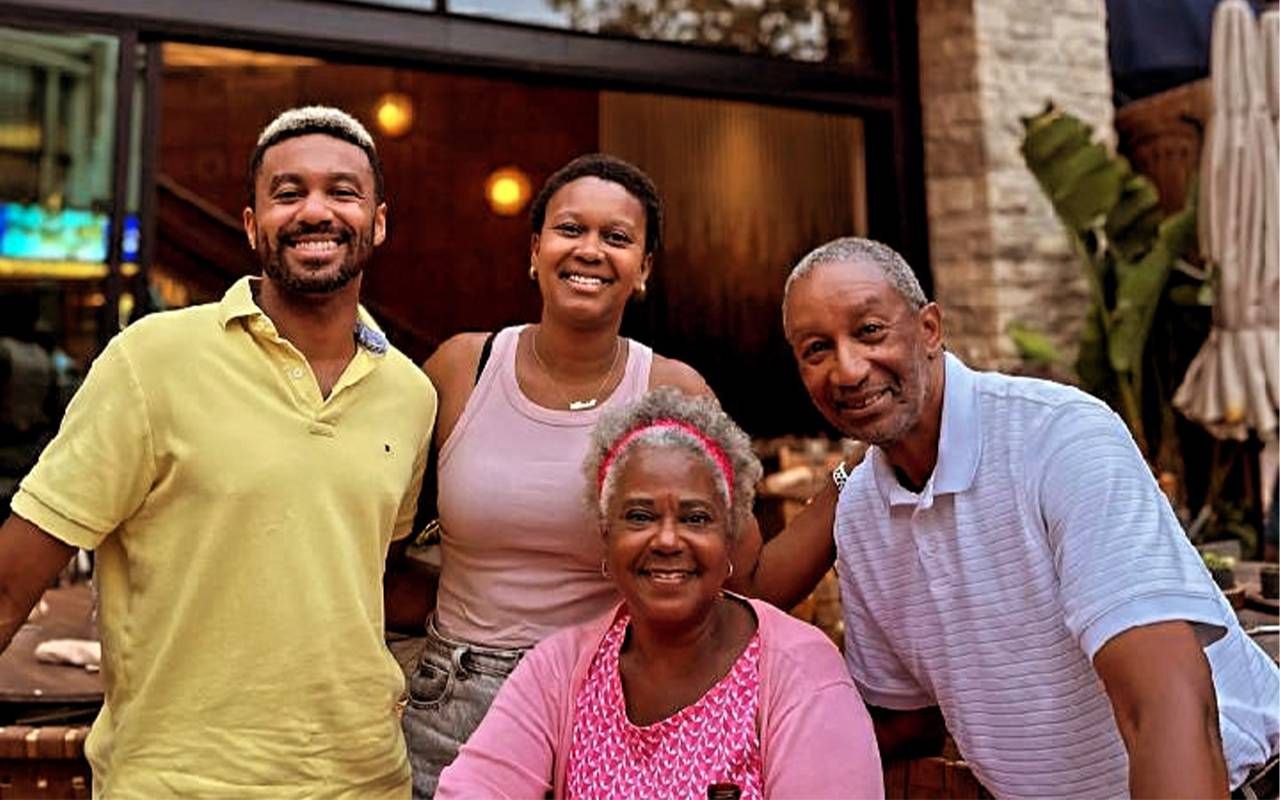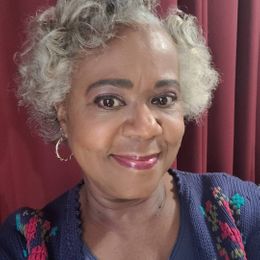How Our Adult Children Helped Us Through a Family Crisis
I'm a breast cancer survivor and my husband recently recovered from a serious stroke. Our son and daughter became the 'spokespersons' I never realized they could be.
As January 2023 began, I considered my husband Clifford and I to be fairly healthy. At 62 and a seven-year breast cancer survivor, I watched my diet (usually) and stayed active by walking, teaching K-12 students part-time, writing part-time, and taking the occasional Zumba class to push my former dancer's body beyond the regular.

My husband, 65, was also active. He did our yardwork himself, rather than hiring a landscaping/lawn crew. He suffered from occasional periods of gout, but overall, he was pretty healthy. A longtime remote worker, way before the pandemic, he used the telephone and computer to complete his duties as a marketing executive in the chemical industry, with supplemental meetings with clients and colleagues done via travel for over 35 years.
Luckily, he was not in the other home office space he built above the garage, because it would have been longer before I found him.
Both of us take medications to regulate our blood pressure and cholesterol. Not unusual for folks in our age range.
We both experienced a shock on January 11, 2023, when my husband suffered a stroke while working at his desk in his home office space in our basement. Luckily, he was not in the other home office space he built above the garage, because it would have been longer before I found him.
My Husband's Stroke
The day began with a series of a few unscheduled changes. Originally, I was due to take a substitute teaching assignment at a local elementary school, but it was cancelled. My husband, an early riser, drove to the post office and a few other errands before starting online and telephone conference meetings. I "slept in" until about 9 a.m. Around 11, my husband came upstairs complaining that his eyes "felt funny" so he took out his contact lenses and put on his glasses. I asked if he had eaten breakfast, and he said no, so I decided to make us both some brunch.
After eating, he said he felt better, we watched a movie on Netflix together, then he decided to finish up some work, so he went back to the basement. I took my laptop upstairs to do some bookkeeping necessary for my freelance writing. At this point, it was about 3 p.m.
By 5:30 p.m., I was surprised that I didn't hear my husband coming upstairs from the basement. I went downstairs, and found him on the floor, conscious, but definitely unable to get up by himself. He had fallen off of his chair at his desk. Working together, we got him back into the chair. Immediately I noticed that one side of his face was drooping, and his speech didn't sound quite right.
Calling on Family to Help
I called our nephew, who lives across the street in the home that formerly belonged to my husband's parents when they were alive. I asked him to come over, so I could call 911 while he made sure his uncle didn't fall off the chair again. I called 911, they sent EMS within 15 minutes, a speed required for stroke victims.
I told them both that their father had suffered a stroke, and that I was waiting to speak to doctors to get more information.
Our nephew drove behind the ambulance because we decided it would be better if I didn't drive. Within the next 24 hours, my husband was assessed at one local hospital and transferred to another much larger hospital, once they realized he appeared to have clots in his heart and lungs, in addition to suffering from the stroke. My sister-in-law met us at the first hospital, where she and her son stayed with me. At hospital number two, the emergency room would only allow one relative, so I sent them both home.
Meanwhile, I called our 28-year-old daughter, Allison, who lives in Brooklyn and works in Manhattan as an attorney, and also called her brother, Richard, now 32, and an attorney in Los Angeles. I told them both that their father had suffered a stroke, and that I was waiting to speak to doctors to get more information.
My son said he was making flight arrangements to get to Queens, New York where his dad and I live. My daughter asked if she should come immediately to the hospital, from her Brooklyn apartment, and I told her to wait until the morning, when we had more information. They both told me they would work remotely during our family medical emergency.
I stayed at the hospital until my husband was admitted to intensive care, and I had spoken with several specialists in the areas of cardiology, neurology and pulmonary medicine. After about 24 hours, I went home to rest and shower.
My daughter met me at our house the next morning and came to the hospital with me. My sister-in-law had been there from the time I left the night before until morning when I arrived with my daughter. By that day, which was a Friday, my son arrived at John F. Kennedy Airport from Los Angeles in the afternoon and met his sister and me to see my husband at Northshore University Hospital in Manhasset, New York.
Both my son and daughter had questions for the doctors, and when my son whipped out his laptop with additional questions, I almost fell over. My "kids" seemed to become major adults overnight. Now, I knew that they were certainly adults managing their careers, but I never imagined them helping me handle a family emergency.
By this time, I felt nothing but appreciation for the fact that I was not the only family member asking questions.
I had to become my husband's spokesperson for the first 48 hours, because even though he could speak, and was somewhat cogent, he was not 100%, and could not answer all of the questions the doctors had for him. Once my kids arrived, my husband had two more spokespersons.
On Saturday, doctors told us that they were going to perform open-heart surgery to remove the clots from my husband's heart and lungs, which had started as a clot in his leg. One of the clots had passed through a tiny hole in his heart and gone to his brain and caused the stroke. Since the emergency had occurred on Wednesday, doctors did not want to wait any longer, because even though he seemed stable, another stroke was possible.
My daughter, son and I pressed the medical staff to get a better understanding, because originally, they told us the surgery would be Sunday or Monday. By this time, I felt nothing but appreciation for the fact that I was not the only family member asking questions.
The 'Kids' Took Charge
The six-hour surgery was successful. Afterward, my son confirmed password codes for important accounts with my husband to expedite bill paying. We went to the hospital every day, and as my daughter put it, "We supported each other" during the evenings by eating, watching movies and even sharing a few laughs. My kids ordered food from UberEats, something I never do. The two of them also pressed me and their dad to use an online company to make a will, which I'm embarrassed to say, we had not done yet, even at 62 and 65.
I am much more aware of how important it is to communicate with adult children on an honest level, because they can really help in an emergency.
My son stayed at our home in Queens, working remotely, for about two weeks, during which time my husband's other sister, who lives in Tennessee, also came to provide support. By the time my husband was discharged from the hospital after 17 days, my daughter came with me and spent another weekend to help get her dad settled. Having her with me through discharge, getting my husband in and out of the car, and helping him up the stairs at our home was a lifesaver.
Physical therapy had begun in the hospital, and continued with a visiting physical therapist and nurse at our home. My daughter went back to her Brooklyn apartment, but let me know that I should call her if I needed help. My son continued to call and check on how things were going from Los Angeles, and asked me to let him know if he needed to return.
Our experience with this medical emergency has a positive ending. This September, eight months after his stroke, my husband and I took a two-week vacation to California, visiting Oakland, San Diego, and of course Los Angeles, to visit our son. Our daughter flew out from NYC and met us in Los Angeles for the last five days of our trip, so we could have a family vacation all together.
My husband is back to walking robustly without the assistance of a cane, doing his work as a marketing executive, and enjoying life, with a few more regular appointments with his cardiologist, rheumatologist and regular internist doctor.
For my part, I am much more aware of how important it is to communicate with adult children on an honest level, because they can really help in an emergency.


